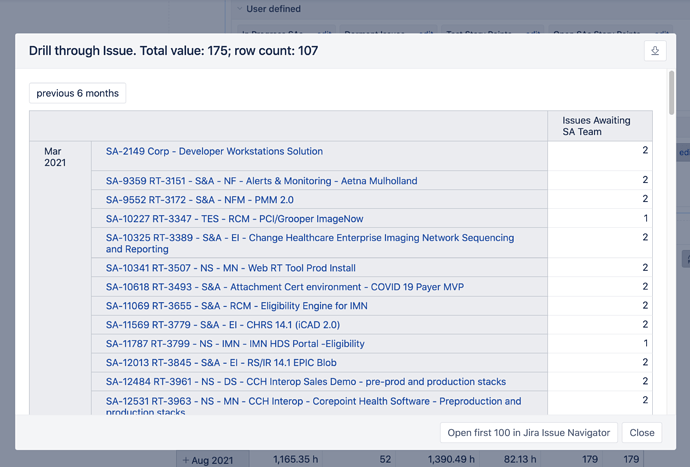I’m able to get down to almost the unique list of issues I want to report on. Either of these calculated measures will produce the same results:
(
[Measures].[Transitions to status issues count],
[Transition Status].[In Progress],
[Issue Type].[Advisement]
)
+
(
[Measures].[Transitions to status issues count],
[Transition Status].[Ready for Review],
[Issue Type].[Advisement]
)
or
Aggregate(
{
[Transition Status].[Ready for Review],
[Transition Status].[In Progress]
},
(
[Measures].[Transitions to status issues count],
[Issue Type].[Advisement]
)
)
But, I cannot figure out how to reduce the count to distinct issues. Drilling into the issues shows that some issues are getting counted twice:
The drill through shows that there are 107 distinct issues. That is the actual number I want to have calculated so I can use it in another report.
